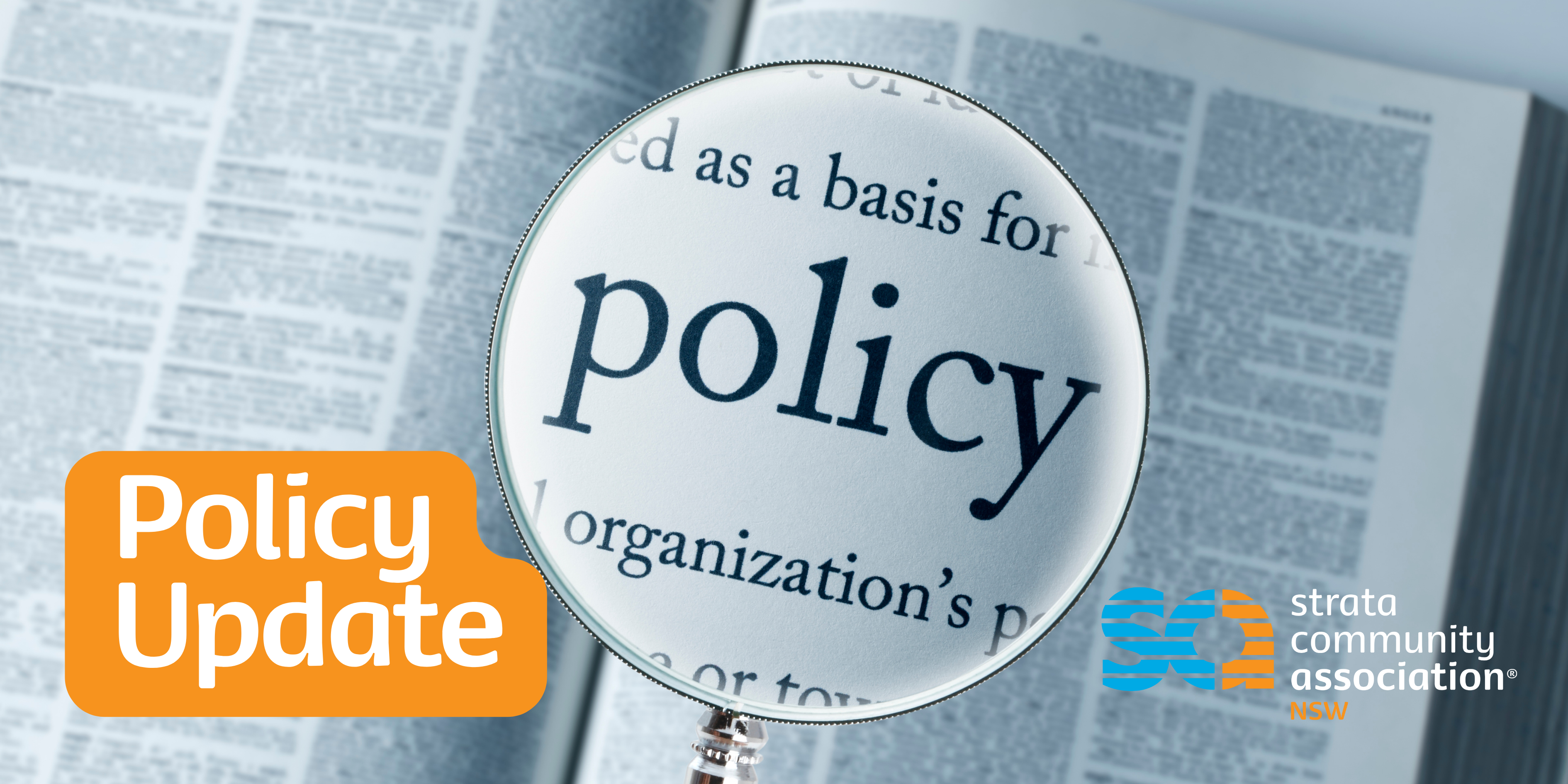
POLICY UPDATE | NSW Strata Reforms
Phase 1 of the Strata Legislation Amendment Bill 2023 (NSW) has officially commenced, marking a major milestone in strata legislation.
These reforms, shaped by insights collected from the statutory review of the Strata Schemes Management Act 2015 and the Strata Schemes Development Act 2015, alongside regulations governing community land schemes, are poised to elevate the overall strata living experience. Geared towards improving transparency, governance, and fairness, these reforms will secure assent to the Strata Legislation Amendment Bill 2023 by the end of November.
Key Changes
- Strata Renewal Process – Owners will be required to disclose any direct or indirect financial interests in a strata renewal proposal. The Land and Environment Court will consider potential conflicts of interest during both strata renewal applications and objections to renewal. Notably, the Court will have the authority to award costs against dissenting owners who act unreasonably or in bad faith.
- Pets and Assistance Animals – Owners corporations or associations are prohibited from imposing fees, bonds, or insurance requirements for pets kept on a lot. Furthermore, by-laws are explicitly prevented from affecting the ability of assistance animals to perform their duties on lots or common/association property. The reforms also emphasise the privacy of persons with assistance animals by outlining specific forms of evidence that schemes can request to establish an assistance animal’s status.
- Strata and Association Committees – Committee members are barred from participating or voting where they have a financial interest, excluding the strata renewal process. The number of committee members has also been increased from nine to fifteen, with underperforming committee members subject to a one-year prohibition on reappointment.
- Meeting Governance – The minimum notice period for Annual General Meetings (AGMs) is extended from seven to fourteen days. Original owners are now required to provide key documents at least fourteen days before the first AGM. Proxy voting restrictions are extended, placing limits on how many owners a power of attorney or company nominee can represent.
- Overall Governance of Schemes – Key provisions include clarifying rules around the transfer of funds between administrative and capital works funds, mandating two quotes for proposed expenditures over $30,000, and requiring landlord agents to provide notice of tenancy to the owners corporation or association.
- Strata Managing Agents – Strata managing agents are required to provide notice of contract expiry to the owners corporation or association three to six months before contract termination.
Missed our webinar on Strata Reforms?
Check out our session with Amy Stiles (Office of the Registrar) and Lachlan Malloch (Office of the Strata & Property Services) on the new Strata Reforms.
Future Changes
In addition to the above changes, three further reforms are scheduled to be implemented at a later date:
- Extending the limitation on owners corporations from making by-laws or decisions that prohibit the keeping of a pet on a lot to community land schemes.
- Granting standing to the Commissioner for Fair Trading to seek the appointment of a compulsory strata managing agent at the NSW Civil and Administrative Tribunal.
- Mandating schemes to maintain new records in electronic form, which will commence six months from the date of assent.
With these transformative changes on the horizon, strata owners, managers, and residents can eagerly await a positive evolution to their strata experience. As the Strata Legislation Amendment Bill 2023 edges closer to assent, the prospect of a brighter future for strata in NSW steadily comes into focus, marking a significant leap toward a more modern, transparent, and equitable strata community.


